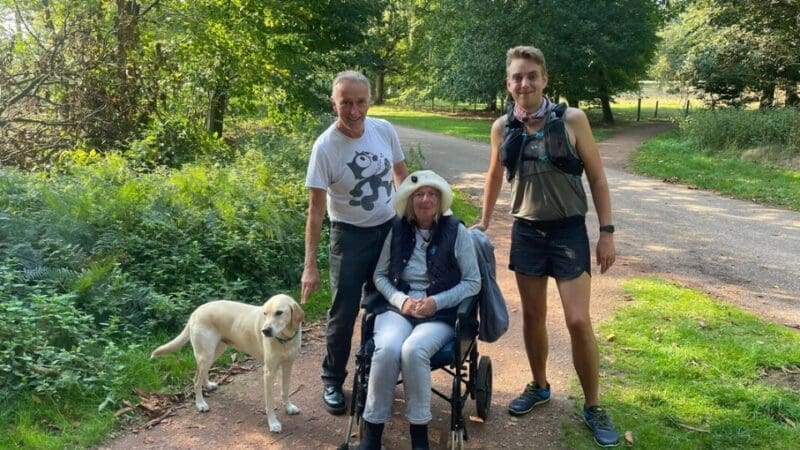Being kind to others helps to build connections and boosts mental wellbeing. We can show kindness to others in many different ways.
Here are seven acts of kindness for someone living with dementia:
Smile and make eye contact
Sometimes, when people know someone has a diagnosis of dementia, they behave differently towards them – for example, they might avoid speaking to the person for fear that they’ll get it wrong. Instead, smile and make eye contact with the person with dementia and, if helpful, keep conversations with them straightforward.
Enter their world
One of the most difficult decisions a person can face when caring for someone with dementia is how far to support that person’s version of events.
People with dementia deserve respect and a key part of this is telling the truth as the first basis. However, it is often better to enter the world of the person with dementia rather than trying to reimpose the present moment on them.
Reminisce
Even though a person living with dementia may find their memory becoming worse, they may still benefit from activities that require their long-term memories to be accessed, rather than relying on recent memories.
Discussing events and experiences from the past can evoke memories, stimulate mental activity and improve a person’s well-being. Reminiscence can often be supported by props such as video, music, pictures and objects that may have particular meaning for an individual.
Play their favourite music
For people with dementia, music can help them express feelings and connect with past memories, which may be easier to recall. This might involve playing music that is significant, such as favourite songs, a piece of music from a wedding, or a lullaby the person used to sing to their children.
Make their favourite food
Try to follow your loved one’s normal likes and dislikes when it comes to food and drink. If they have a smaller appetite, keep their portions small, and talk them through what’s on their plate if that would help them. Check in with them during the meal to see if they are managing, and discreetly offer help, if needed.
Create a Life Story
Try to think of things to do that might engage or evoke memories for the person with dementia. For example, you could build a scrapbook together using photos of their favourite memories.
You could create a Life story book with the person with dementia. This could include aspects of who they are, such as their background, interests, and who and what is important to them. A Life Story acts as a record of information and can be shared with others to help them better understand and relate to the person with dementia.





